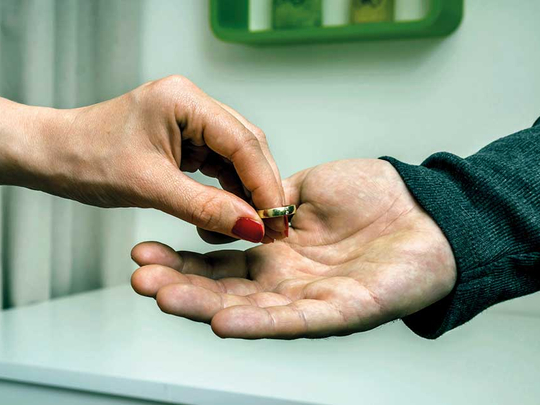
DUBAI: Divorce granted to non-resident Indian (NRI) couples by UAE courts are not binding in India and can be challenged in home courts, lawyers said.
According to a Dubai-based lawyer, in case of a dispute, either partner can file a fresh complaint in Indian courts to challenge the decision under The Special Marriage Act, 1954.
UAE law
Indian expats in the UAE can file for divorce and custody of children under Federal Law No. 28 of 2005 regarding Personal Status (‘Personal Status Law’). “There is no issue if the divorce is mutual, but if there’s a dispute they can file a fresh complaint in an Indian court,” said Devanand Mahadeva, director, Goodwins Law Corporation.
Mahadeva said in the past month he has seen five UAE court orders challenged in Indian courts. “There have been several instances of ex-parte judgements where the court has made its decision without hearing both parties. Many of these decisions were contested in India and subsequently overturned,” he said.
Ashish Mehta, managing partner, Ashish Mehta and Associates said: “Under section 13 of the Civil Procedure Code of India 1908, the foreign court judgements are not valid in cases where the order has not been pronounced by a court of competent jurisdiction or has not been given on the merit of the case. “The divorce will also be considered invalid if it appears that the judgement obtained was opposed to natural justice or has been obtained by fraud or where it sustains a claim founded on a breach of any law in India.”
According to the Statistics Centre — Abu Dhabi (SCAD) report, 1,922 divorce cases were recorded in the capital in 2016. More than half of these failed marriages did not last beyond three years and over 28 per cent of couples who divorced did not complete one full year of marriage. However it’s not known how many of these cases involved Indians. In Dubai, a report issued by the Dubai Statistics Center (DSC) revealed for every thousand couples living in the emirate, 12 ended up getting divorced.
The reasons cited for divorces in the UAE included infidelity, poor (or lack of) communication, job loss or financial strain, social media, religious and cultural differences and unrealistic expectations.
Take the case of Ravindran Nair who was undergoing cancer treatment in his home town Tiruvanthapuram when his wife got an ex-parte divorce order from Dubai Courts. The court not only gave her custody of the couple’s two teenage children but also awarded her an alimony of Dh500,000.
However, Nair challenged the decision in India and got joint custody of the children. The alimony amount was also reduced from Dh500,000 to Dh100,000.
Similarly, Meghna Kapoor also successfully contested a Dubai Court order which granted custody of their children to her Dubai-based husband. “It took two years, but in the end I got joint custody of the kids and also Rs10 million (Dh532,939) in alimony.












